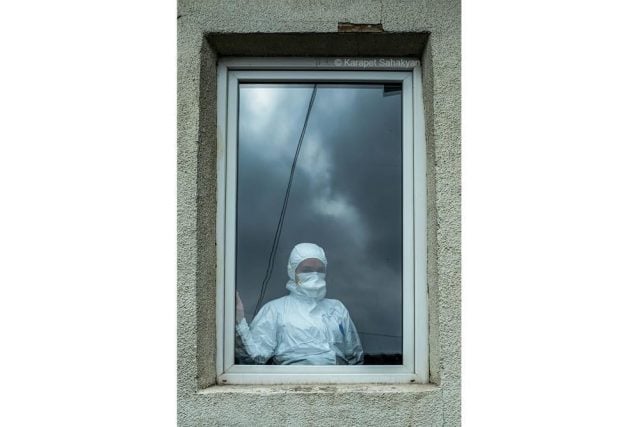Simply reducing alcohol consumption can greatly reduce the risks, says WHO/Europe
COPENHAGEN, 20 October 2021
Breast cancer is the most frequently diagnosed cancer type in the WHO European Region with 1579 women diagnosed with breast cancer every day. Alcohol consumption is one of the major modifiable risk factors for the disease, causing 7 of every 100 new breast cancer cases in the Region. During Breast Cancer Awareness month, WHO encourages everyone to understand that the risk of breast cancer can be significantly reduced by simply reducing alcohol consumption.
Alcohol: the cause of nearly 40,000 new breast cancer cases
Read also
The WHO European Region has the highest rate of new breast cancer diagnoses compared to any of the other WHO Regions. And according to estimates from the International Agency for Research on Cancer (IARC), in 2020, alcohol consumption was responsible for almost 40 000 new breast cancer cases in the Region.
The same data show that breast cancer has become the most common cancer globally. More than 2 million new cases were estimated in 2020 with about 100 000 of these attributable to alcohol consumption.
“Many people, including women, are not aware that breast cancer is the most common cancer caused by alcohol among women globally. People need to know that by reducing alcohol consumption they can reduce their risk of getting cancer. It doesn’t matter what type, quality or price alcohol is”, says Dr Marilys Corbex, Senior Technical Officer on noncommunicable diseases, WHO/Europe.
How to prevent alcohol-related breast cancer risks
Alcohol is classified as a Group 1 human carcinogen by IARC. It is causally linked to seven types of cancer. Besides female breast cancer, it increases the risk of developing the following types of cancer: oral cavity (mouth), pharynx (throat), oesophagus (gullet), liver, larynx (voice box) and colorectum (large intestine and rectum).
There is no safe level of alcohol consumption. The risk of breast cancer increases with each unit of alcohol per day. More than 10 percent of alcohol-attributable cancer cases in the WHO European Region arise from drinking just one bottle of beer (500 ml) or two small glasses of wine (100 ml each) every day. For breast cancer this is even higher, with 1 in 4 alcohol-attributable breast cancer cases in the Region being caused by this amount.
“Simply put, alcohol is toxic. It harms every organ while it passes through the body”, said Dr Carina Ferreira Borges, Acting Director for Noncommunicable Diseases and Programme Manager for Alcohol and Illicit Drugs at WHO/Europe. “So, it makes perfect sense to limit the amount of consumed alcohol, to find ways to replace alcohol with other beverages, and to adopt nation-wide policies that help to reduce alcohol consumption”.
Reducing alcohol harm in the Region
WHO recommends the following “best buy” policies that are cost-effective and are able to reduce alcohol consumption levels and bring down the number of cancer cases caused by alcohol use:
- Making alcohol less affordable (for example, by increasing excise taxes);
- Banning or restricting alcohol marketing across all types of media;
- Reduce alcohol availability (for example, by regulating sale hours).
WHO also strongly recommends all countries of the WHO European Region to place health warnings on labels of alcoholic beverages so consumers can easily make a correct decision while choosing what to drink.
The WHO European Programme of Work 2020-2025 (EPW) and WHO/Europe’s United Action Against Cancer initiative aims to eliminate cancer as a life-threatening disease in the Region and beyond.





























































